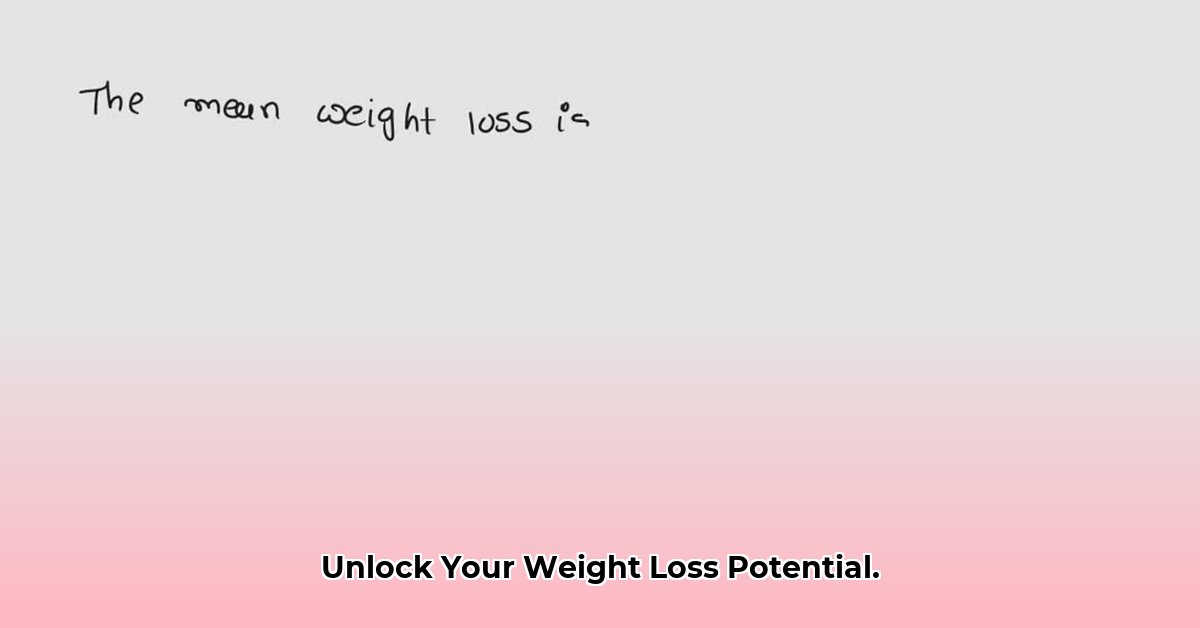
What Does UGW Mean in Weight Loss?
Ever heard the term "UGW" floating around in weight-loss discussions? It stands for Ultimate Goal Weight, representing your ideal, long-term weight. It’s not just about a number on the scale—it's about achieving a weight where you feel healthy, energized, and confident. This guide provides a step-by-step approach to defining your UGW and achieving sustainable weight loss.
Understanding Your Weight Journey: It's a Marathon, Not a Sprint
Before diving into your UGW, let's clarify some related terms:
- HW (Highest Weight): Your heaviest recorded weight—a reminder of how far you've come!
- CW (Current Weight): Your current weight—a starting point, not a judgment.
- LW (Lowest Weight): Your lightest recorded weight—a source of inspiration, but remember, your self-worth is not defined by a number.
- GW (Goal Weight): A shorter-term weight target—a milestone on your journey to your UGW.
These numbers offer context; focus on the overall journey towards a healthier you. Remember, sustainable weight loss is a marathon, not a sprint. Do you find yourself obsessing over daily fluctuations? It's crucial to remember that weight naturally fluctuates.
Setting a Realistic UGW: Laying the Foundation for Success
Setting an unrealistic UGW often leads to frustration. Instead, aim for a healthy weight aligned with your body type, lifestyle, and overall health. This is where professional guidance is invaluable. A doctor or registered dietitian can help determine a safe and achievable UGW, considering factors beyond the scale. They prioritize your overall health and can help you make smart, informed decisions.
Your Step-by-Step Guide to Defining Your UGW
Seek Professional Guidance: Consult your doctor or a registered dietitian to determine a healthy weight range. This is the cornerstone of a successful plan!
Know Your Body: Consider your age, activity level, family health history, and medical conditions. These factors influence your ideal weight.
Make it SMART: Your UGW should be Specific, Measurable, Achievable, Relevant, and Time-bound. Set a clear target, track progress, ensure it's realistic, fits your lifestyle, and give yourself a reasonable timeframe.
Visualize Success: Imagine yourself at your UGW. How will you feel? This visualization boosts motivation.
Be Flexible: Life happens! Adjust your plan as needed. Progress, not perfection, is key. Remember, it's a journey with ups and downs.
Tracking Your Progress: Small Wins, Big Results
Regularly track your progress – it's motivating! Don't solely rely on the scale. Note improvements in energy levels, sleep, mood, and clothing fit. Celebrate every milestone, big or small! How often do you reward yourself for achieving smaller goals? Regular, small rewards can build positive momentum and reinforce healthy habits.
The Importance of Professional Support: You Don't Have to Do This Alone
Weight loss doesn't have to be a solo endeavor. Professionals like registered dietitians or certified personal trainers offer personalized advice, ensuring your methods are safe and effective. They provide valuable support and can help prevent common setbacks. How much do you value the accountability aspect of professional support? Many benefit greatly from that critical external accountability!
Beyond the Numbers: It's About Overall Well-being
Sustainable weight loss prioritizes long-term health. Focus on building lasting healthy habits – balanced nutrition, regular exercise, stress management, and sufficient sleep. These habits will support your UGW and overall well-being. Isn't overall well-being the ultimate goal? It should be; remember that weight loss is just one component of a healthier lifestyle.
How to Realistically Set an Ultimate Goal Weight Considering Overall Health
Key Takeaways:
- Gradual weight loss (1-2 pounds weekly) promotes long-term health.
- Setting SMART goals is crucial for realistic UGWs.
- Individual factors impact realistic weight targets.
- Prioritize a holistic approach encompassing diet, exercise, and mental well-being.
- Regular check-ins with healthcare providers are essential.
Understanding Your "UGW"
Your UGW isn't just a number; it's a weight you can realistically maintain long-term, supporting your overall health and well-being.
Setting Smart Goals: The SMART Approach
- Specific: Define your target weight precisely (e.g., "lose 15 pounds").
- Measurable: Track your progress regularly (scale, measurements, fitness tracker).
- Achievable: Aim for 1-2 pounds of weekly weight loss.
- Relevant: Ensure your goal aligns with your health and lifestyle.
- Time-Bound: Set a reasonable deadline for accountability.
Beyond the Number: Holistic Health
Consider these factors:
- Body Composition: Muscle weighs more than fat; focus on body fat percentage.
- Energy Levels: Are you feeling energetic?
- Fitness Levels: Are your routines enjoyable and sustainable?
- Mental Well-being: Are you managing stress effectively?
Building a Sustainable Plan
Consistency is key. Focus on:
- Balanced Diet
- Regular Exercise
- Mindful Eating
- Stress Management
- Professional Support
Addressing Potential Challenges
- Plateaus: Adjust your approach.
- Emotional Eating: Identify triggers.
- Lack of Motivation: Build a support system.
Your UGW: A Stepping Stone to a Healthier You
Your UGW is a guidepost. Celebrate your progress, focusing on building lasting healthy habits. Your well-being is paramount. Your journey to a healthier you is one of consistent effort and self-care. Remember to embrace the process!